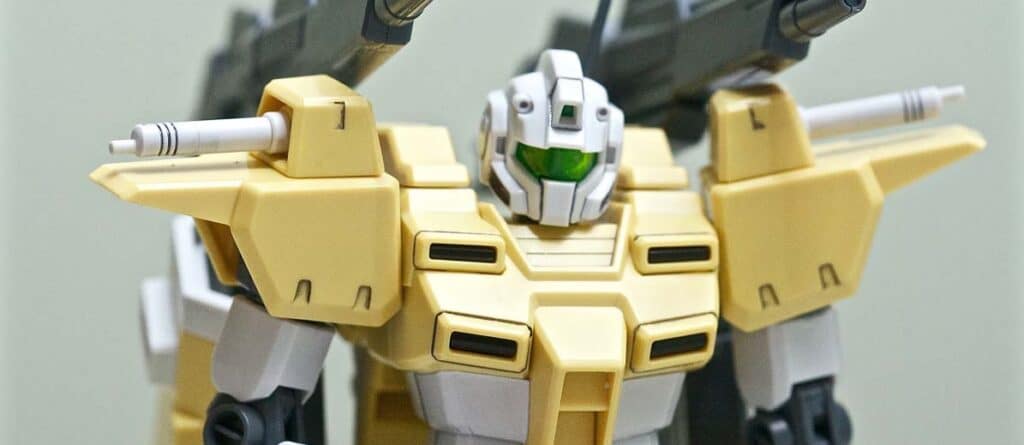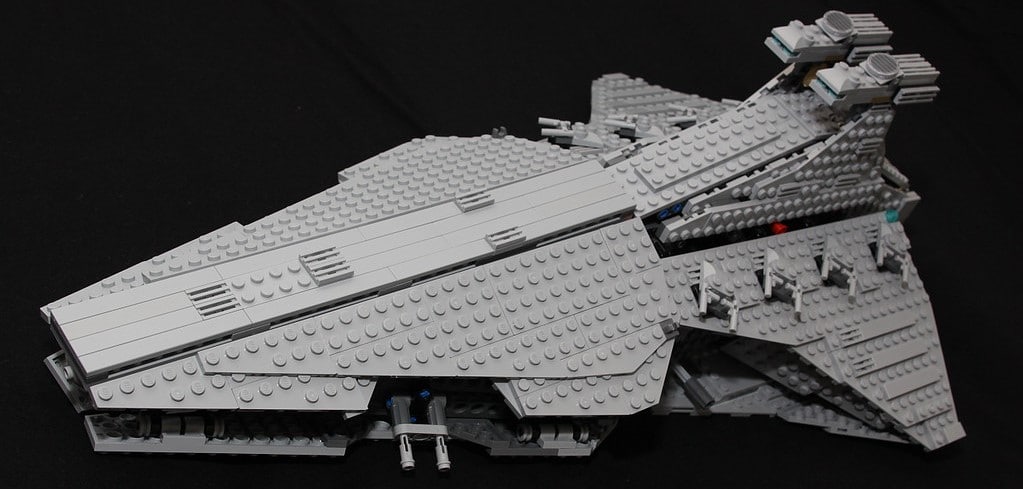Answer: Yes, but results may vary, and it is likely that the paint will get chipped and scratched over time.
For those who enjoy using miscellaneous LEGO pieces to make your own creations, you know full-well that sometimes you just can’t find certain pieces in the color that you need. There are a couple different ways to handle this. You could find the piece online through resources like BrickOwl; or you could choose to modify a piece that you already have. One way to modify pieces is painting them.
What Paint Should You Use on LEGOs?
When it comes to painting LEGOs, finding a paint that sticks and is the correct color can be difficult; however, you are usually going to be looking at acrylics and/or enamel paint. Either are an option, but acrylics are more frequently recommened. Different techniques may be involved depending on the type of paint you choose. I should also note that there are those who recommend using acrylics and discourage enamels and vice versa. You may need to try both and see what works best for you.
LEGO enthusiast, TheMooseFigs, does a lot of modification of LEGO mini figures. In this video, he goes through some of the products he uses—mostly acrylic paints. I’ve included some of the products he uses below:
- Metallic Acrylic Paint by Craft Smart 2 oz. (Bright Gold) (Amazon)
- FolkArt 667E Metallic Acrylic Craft Paint, Metallic Finish, Gunmetal Gray (Wal-Mart)
- Apple Barrel Gloss – Real Blue (Plaid)
- Apple Barrel Acrylic Paint Flesh Tones Set – Lite Mocha & Sunkissed Peach (the one mentioned in the video) (Amazon)
- Apple Barrel Acrylic Paint in Assorted Colors 21390, Khaki (Amazon)
MGF Customs also modifies LEGO minifigures and walks you through his process in this video. He recommends water based acrylic paints from brands such as Apple Barrel, Folk Art, Craft Smart, and Lumiere. He does not recommend using oil based paints.
Another brand that gets recommended quite a bit is Games Workshop. Games Workshop specializes in miniature figure and model customization, and many hobbyists in those niches use their products.
Their website recommends this set for beginners:
- Warhammer 40,000: Paints + Tools Set (Amazon) (Games Workshop)
Using Spray Paints to Paint LEGO Parts
There are some who feel that spray paints provide better results than using a brush or some other tool. That being said, the spray paints that are usually recommended for the best results tend to be a little bit more expensive.
- Humbrol AD6220 Gloss Shade 220 Acyrlic Spray, Italian Racing Red, 150 mL (Amazon)
There are those who get good results with spray paint, and those who do not. It seems like you need to find a brand that you like and learn how to apply the paint properly for best results.
Using Enamel Paints
Acrylics get recommended the most; however, there are those who prefer enamel paint and feels that acrylics are more likely to get scratched and chip. As for enamel paint usage, this post on The TTV message board may be a good resource for you.
What Else Will You Need?
Of course, you will need brushes. Some even use thumb tacks or toothpicks to spread the paint. In the video I linked to earlier in this article, MGF Customs uses a tack.
In some cases, a primer might need to be applied ahead of time (depending on the type of paint you’re using). Some people also use a sealer once finished to add an extra layer of protection for the paint.
A gloss finish is sometimes applied to make the painted look more natural and make the painted pieces stand out a little less. Paints that are naturally glossy will not need this.
The Process of Painting LEGO Bricks
I’m not going to go into detail about how to paint LEGO pieces in this post (this is not a tutorial post), but it should be noted that painting LEGO pieces is a long and tedious process no matter what paint you decide to use. You need to take time and care when doing this so that the paint job is not sloppy.
Depending on the paint that you use, more layers may be required. Enamel paint, for example, will likely require multiple layers to be applied.
In some cases, a primer may need to be applied beforehand, and some people like to use sealers after the piece has been painted.
Problems with Painting LEGOs
Thickness
One problem with painting LEGO pieces from a purely functional standpoint is the added layer of thickness that the layers of paint will add. The layer(s) will make the size of the piece abnormal and could make plugging it into another piece difficult.
Chipping and Scratching
Painted LEGOs may only be good for display. Any bit of usage beyond that will likely result in the paint chipping and scratching. In other words, don’t throw your painted LEGO pieces into a plastic tub full of a bunch of other parts. The paint will get scratched and chipped.
Bubbles and Sloppiness
Painting LEGO pieces will takes practice. You’ll probably ruin quite a few pieces before you find a method of painting that works for you. Early on, your painted LEGO pieces will not look very good. There could be bubbling in the paint, hair or dust could get painted over, and there may be an overall sloppiness to the paint job. It will take time and practice for you to get the hang of it.
Things Not Being Uniform
Painted LEGO pieces are going to have a different sort of “look” to them simply because of the fact that they have been painted. For example, if the paint that you are using is not glossy, and you choose not to use a glossy finish, the painted LEGOs will not have the same shine that the rest of the pieces have.
Alternatives to Painting Your LEGOs
If you need to change the color of a LEGO brick or modify a piece in some way from a color standpoint, this doesn’t always mean that painting is necessary. There are alternate ways of changing the color of pieces, or just get the color you need. Check out our post on this topic: How to Change the Color of LEGO Pieces – 4 Ways to Do It
Be Prepared for Some Criticism
Many LEGO enthusiasts really don’t like the idea of painting LEGO pieces, or pieces being modified in any way at all. The term “blasphemy” gets used half-jokingly to describe any modification to a LEGO piece. If you do modify parts, just be ready for some to take issue with that. Posting pictures of your creations to social media, or taking your creations to conventions, may draw the ire of a few people. Just remember that its only their opinion. Be respectful, but ultimately, you may need to just ignore them.
Related Articles
How to Clean Dust off Gundam Models
Dust can be a major problem for collectors of Gundam Model kits, also known as Gunpla, if they are not properly displayed in a cabinet or display case. When left out in the open, dust can accumulate on the surface of the models, obscuring the intricate details and...
How to Get Sharpie Permanent Marker off LEGOs
So you ordered a bunch of Lego pieces (mostly likely minifigures), and they are covered in Sharpie. Or you’re going through a bunch of your old LEGOs and find that, as a kid, you covered them in Sharpie. This can be a problem if you want to sell, display, or...
How to Change the Color of LEGO Pieces – 4 Ways to Do It
If you want to change the color of a LEGO pieces, but you don’t want to purchase the piece in a different color through sites like eBay, LEGO.com, or Bricklink; there are some other options for you. It may be possible for you to change the color of the piece...
How to Display LEGO Star Wars Ship Sets
Star Destroyers, Tie Fighters, X-Wings, LAATs—there are so many different types of ships in the Star Wars Universe. If you’re a Star Wars fan and also enjoy building LEGO sets, you may have a number of LEGO Star Wars ships assembled and sitting on the shelves in...
6 Ways to Avoid Dust While Displaying LEGO Sets
When displaying your epic LEGO set collection, there are many hazards you must consider. One of those hazards is dust. While dust will not damage your LEGO sets, it certainly doesn’t look nice at all; and once the dust has settled, it can be pretty hard to clean....
What to Do With Action Figure Boxes?
If you’re reading this, you’re probably the type of collector who opens your action figures. This being the case, you have likely accumulated a number of boxes over the years and now you’re wondering what you should do with them. Even if you open your action...
How to Store LEGO Sets That Are Built
Storing LEGOs seems like it would be pretty straightforward. Organizational draws and/or containers are great for organizing the variety of different bricks and other parts you might have. Small boxes or plastic bins can also be utilized. What about LEGO sets and...
6 Ways to Protect Your Action Figures from the Sun
Sunlight is possibly the greatest foe your action figure collection will ever face. The UV rays from the sun can cause the colors to fade on your figures, or worse, to discolor. The yellowing of plastic that used to be white is a prime example of how detrimental...
How To Clean Dust Off Action Figures
Do your action figures have a layer or three of dust built up on them? If they do, then you probably want to get them cleaned off and prevent it from happening again in the future. Well, in this article, we’ll be going through some methods for cleaning that dust...
How To Sell Your Used LEGO Sets
Selling used LEGO sets is not as simple as selling sets that have never been removed from their packaging. There are a number of different factors to consider such as the condition of the pieces, whether or not the sets are complete, how you should go about selling...


